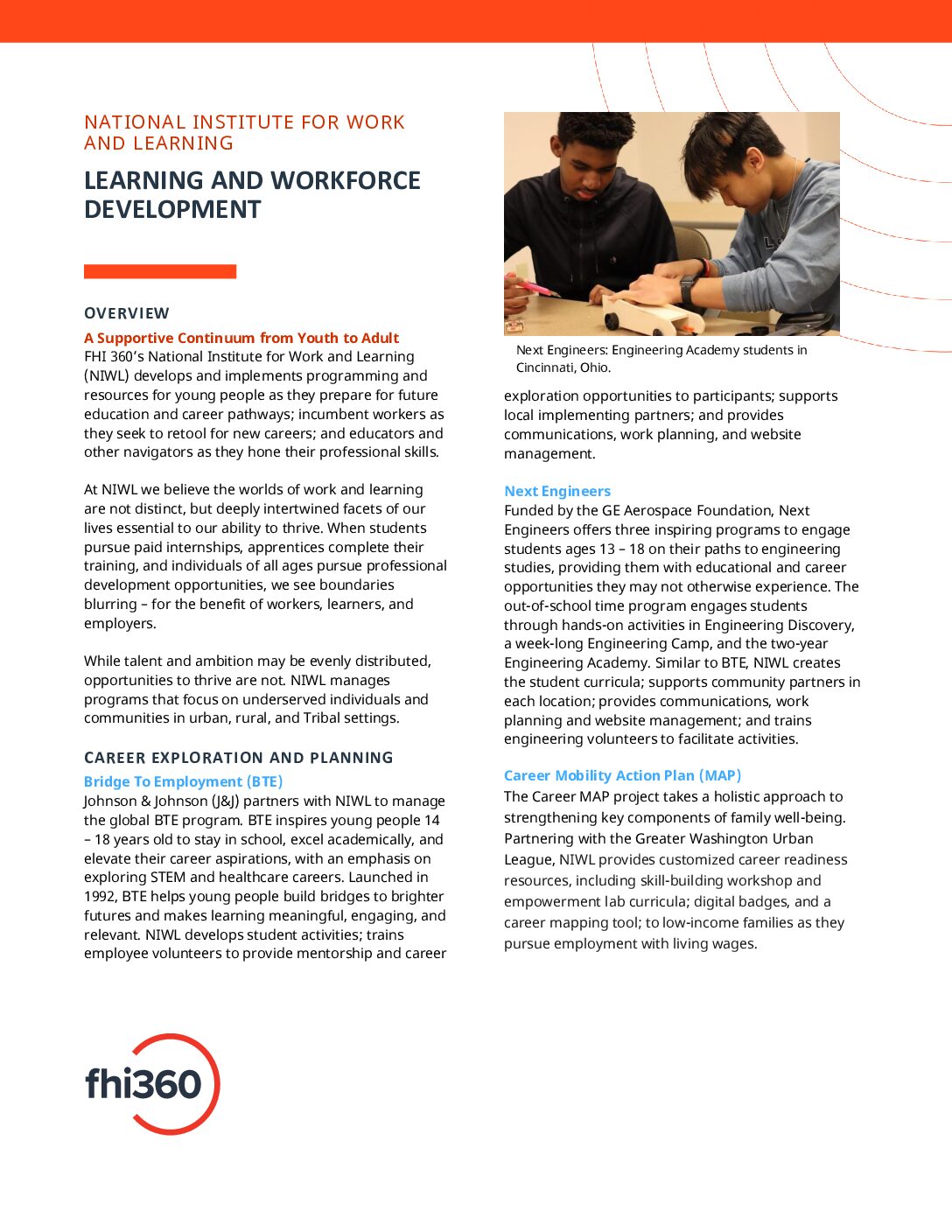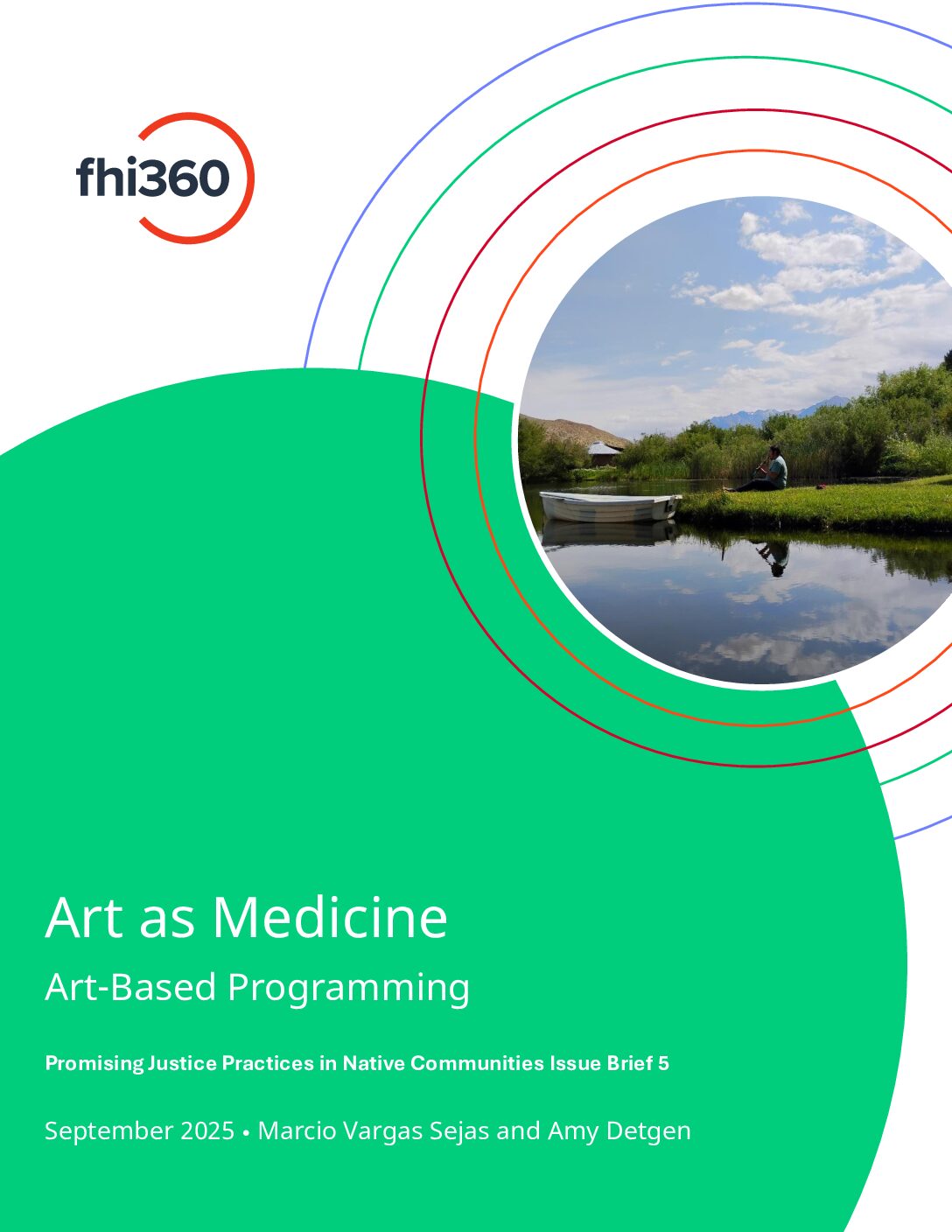NIWL’s programs serve youth and young adults in career exploration, workforce development, and education to career transitions – all to serve the greater workforce environment in a way that benefits workers, learners, and employers. Read the full overview to learn more.
Type: Article | Case Study | Overview | Story
Substance Abuse Prevention Programming examines the inclusion of Indigenous knowledge, culture, and traditions in health interventions for Native youth. Culture-centric programs promote holistic healing, connection to community, and beneficial, lasting change.
Read the full report to learn more.
Art as Medicine: Art-Based Programming examines the benefits of art as an avenue for emotional expression and healing for justice-involved youth. Art-based programs can help youth process emotions, manage behavioral issues, and develop healthier responses to stress, in addition to building their interpersonal, problem-solving, and emotional regulation skills.
Read the full report to learn more.
Mentoring and peer programs rooted in cultural values are proving to be powerful tools for supporting American Indian and Alaska Native youth. These initiatives, ranging from drumming-based mentoring and equine therapy to youth-led courts and peer recovery support, build on trusted relationships and shared lived experience to foster resilience, reduce justice involvement, and promote mental wellness. This issue brief highlights promising, community-driven approaches that center Native voices and traditions, offering professionals practical insights into culturally responsive, strengths-based strategies that work.
Read the full report to learn more.
FHI 360’s National Institute for Work and Learning (NIWL) provides support to education providers, workforce trainers, and their local partners to improve education and employment outcomes for youth aged 18-24 involved with the criminal legal system. Using a statistical lens, this document details the impact of NIWL’s five U.S. Department of Labor-funded Compass Rose Collaborative re-entry programs operating between 2017 and 2024.
For Second Chance month, we spoke to Olivia Murphy, who serves as senior career coach (and now youth program manager) for The Spot: Young Adult Opportunity Center in Louisville, KY. The story highlights how KentuckianaWorks navigates the challenges of life after incarceration, and how their impact encourages people to embrace second chances.
Read the full story to learn more.
Breaking Cycles of Adversity explores how school-based prevention strategies foster educational success, strengthen social connections, and reduce interactions with the justice system. Culturally relevant approaches that promote positive decision-making can support healthy relationships, strengthen identity, and improve mental and physical health, which are critical protective factors against justice system involvement.
Read the full report to learn more.
Honoring the Past to Empower the Future reviews the landscape of holistic and inclusive approaches to trauma-informed and healing-centered care for youth as implemented by tribal governments and organizations. Approaches that incorporate medicinal practices and cultural values, focus on the healing power of empathy, draw on the wisdom of elders and spiritual leaders, and embrace the rehabilitative potential of community engagement help to promote an environment of healing, recovery, and growth. Read the article to learn more.
“To me, that’s the biggest message with this apprenticeship — this is the perfect way to learn how to change lives.”
As we celebrate National Apprenticeship Week 2024, we highlight two Lake County Youth Development Practitioner Apprentices who use their work to break the cycles of trauma and heal their communities: Luis Garcia Jr. and Jenessa Armstrong. Click here to read about their journeys in becoming the person they wanted to have in their corner growing up.
Tribal Healing to Wellness Courts have emerged as a promising community-based, culturally competent solution to disproportionate Native incarceration in the United States, drawing on the community to appropriately address the needs of justice-involved Native Americans. This review examines the disparities in Native incarceration in federal and state systems, as well as how these disparities can be addressed, including the role of Tribal Healing to Wellness Courts in effectively improving outcomes for participants.










